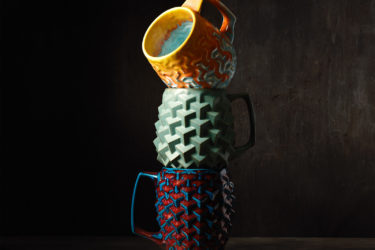The Local newsletter is your free, daily guide to life in Colorado. For locals, by locals.
It’s hard to be 100 years old and still look fresh. But that’s precisely the magic that L. Ercolani, the venerated British furniture company, has conjured.
If you’ve never heard the name before, you’re certainly not alone, because the furniture line has never been available in the United States—until now. The brand has chosen Denver as its new North American home, with an office and showroom at RiNo’s Studio Como.

“We’re like a mid-century brand that nobody knows about, and that’s special,” says Denver-based Ben Gaffney, L. Ercolani’s vice president of the Americas and international design development. “L. Ercolani is about history and quality, craftsmanship and timelessness,” he explains. “That’s something that we’re really proud of, and I think that’s where we really stand out. We’ve been just waiting for the opportunity to tell the story.”
That story explains why an Italian name came to be associated with old-fashioned British woodworking traditions. It all started when Lucian Ercolani emigrated from Italy to England with his family in the 1890s. He studied furniture-making at night school in London, and then founded his company, Ercol, in 1920. Spurred by a 1944 Board of Trade Utility Furniture contract to mass-produce 100,000 Windsor chairs, Ercolani made a name for himself by modernizing the familiar chair for a new, postwar era. He drew on memories of Shaker furniture that he’d admired on a trip to New York to create a pared-down Windsor chair with a durable and elegant simplicity.
Many of Lucian Ercolani’s early, classic furniture pieces are still available today, and their no-fuss style suits any interior. “It transitions to all these different homes,” Gaffney says. “You can live in a San Francisco Victorian or a New York loft and it really works across all these different aesthetics.”
The fourth-generation, family-owned company recently added new furniture lines designed in collaboration with outstanding contemporary talents, including Norm Architects, Lars Beller Fjetland, and Tomoko Azumi. “We look for people who understand woodworking, designers who are willing to push us forward and challenge us,” Gaffney says. “We want to innovate; we don’t want to just rest on these traditional woodworking techniques.”
Crafted in solid walnut and ash, the furniture pieces are built to last so they can be passed down to the next generation. “We are really trying to focus on U.K. manufacturing; that’s important to us,” Gaffney says. “We still see people that have worked at the factory for 40-plus years.” That old-school approach translates to immaculate craftsmanship. “People really respond to heritage; they respond to timelessness; they don’t want throwaway furniture,” Gaffney says. “Our customer wants to know that they are making a good investment not only for the environment, but for themselves as well.”
Longevity is key to the L. Ercolani approach. “We’re a 100-year-old startup,” Gaffney says. “We always say it’s 100 years forward; that’s all we need to think about right now.”














